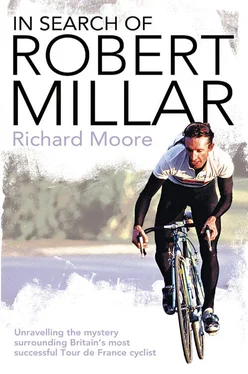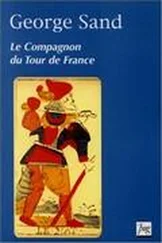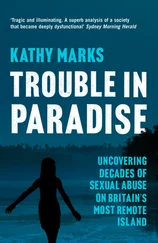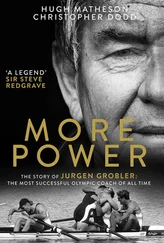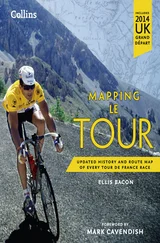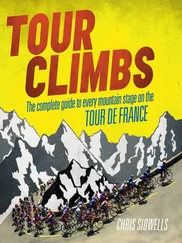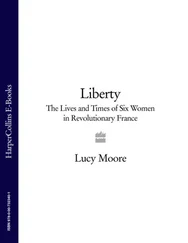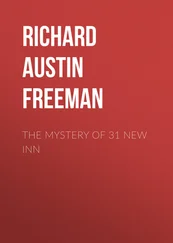Millar left nobody in any doubt as to why his trips home became shorter, and less frequent, until they stopped altogether. The impression of Glasgow that he shared with the wider world – ‘abroad, where you find out what you have been missing’ – was unequivocal, even if his own feelings towards Glasgow, and Scotland, have at times appeared ambiguous. In an interview in 1987 he blamed the weather, declaring it ‘disgusting’ and continuing, ‘Know any place else where it rains during the day, but not at night? I like the people, not the place: grey, grey, grey. But remember, I spent the first few years of my life in the Gorbals before moving to the city outskirts – a modern housing estate built on a razed slum and fast turning back into one.’ In the city where he grew up, said Millar, the first lesson learned was that ‘Fellow who can’t climb tree fast enough gets eaten.’
It was too much for some Glaswegians. That same year, 1987, a letter appeared in Cycling magazine: ‘Well done, Robert, you’ve done it again. You have just put off many would-be visitors from coming to Glasgow. I’ve been listening to you moaning and whining for years now, it’s pathetic. Glasgow is no worse than any other big city in Britain, and a lot better than some. Can you possibly think of anything worse to say? No – I think you’ve said it all. On your bike, Robert.’ And when an extract of a chapter on Millar in Robin Magowan’s Kings of the Road appeared in Cycling , it provoked this response from a Scottish reader: ‘The suggestion that Millar was a “dead end kid” who was lucky not to be “behind bars, if not dead at 15” is amazing. Robert Millar was raised in Pollok. Unlike the Gorbals this is a very average housing estate just like any other city around the globe, and is not particularly unpleasant … Strange indeed that the son of an engineer, raised in an average area and educated to a high standard should be described in this way … I am suspicious of the seemingly verbatim quotes of Millar’s, such as “I had the A-and O-levels to have gone to university.” In Scotland we do not sit A-levels.’
And yet, and yet … ‘I don’t feel Scottish,’ he told a journalist in 1998, ‘I am Scottish.’ A sense of resignation is perhaps detectable here, but also some pride – and, typically of Millar, defiance. There are other examples of his paradoxical attitude towards Scotland. In 1992, during a Tour de France that visited all the member countries of the European Union that bordered France, the riders’ daily race numbers were adorned with the blue EU flag with its twelve small stars; each morning, Millar painstakingly coloured in the stars with a blue biro before scratching a cross – thus creating a Saltire, Scotland’s national flag. Yet it is clear that Millar felt oppressed and held back by Glasgow and its people. Being small in height and build, in a city renowned for its proliferation of ‘hard men’ and its admiration for the ‘big man’, he might also have felt that he didn’t fit in. But ‘grey’ was the word he seemed to prefer, using it repeatedly to describe the city. In stark contrast was Europe, colourful and alive with possibilities.
It was to Europe that he travelled, as soon as he could. When Millar arrived in that promised land, he bumped into an Australian cyclist whose ambitions, if not his middle-class upbringing, mirrored his own. Phil Anderson would later go on to become the first non-European ever to wear the yellow jersey of the Tour de France leader. But four years before that he was, like Millar, lost and alone in Paris. At the airport, Millar looked in vain for the representative from the Athlétique Club de Boulogne-Billancourt (ACBB) who had (or so he understood) been sent to meet him. When it became clear that there was no such person, Millar got a taxi to Boulogne-Billancourt, the Paris suburb where he, Anderson and four other exiles were to be barracked in apartment blocks. These were Spartan, and hardly glamorous. For Millar, the contrast with Glasgow can’t have been as stark as he might have anticipated, or hoped for.
Though Millar was quiet and reserved, Anderson, who arrived in Paris from Melbourne within hours of Millar, soon learned about his new club-mate’s upbringing in Glasgow. ‘I remember him saying to me, early on, that he saw cycling as a way out,’ says Anderson. ‘For him, I think it was a way of getting out of a depressed situation. I don’t think he had a very good home life or family life, and he saw cycling not so much as a way to make wealth, but a way to get out. He spoke a little bit about Glasgow and he didn’t paint a very good picture; he came from the rough side of town, I think. I certainly understood, from what he told me, that he came from the wrong side of the tracks.’
There was some truth in Millar’s description of Glasgow and of his upbringing. But it wasn’t the whole truth. Willie Gibb, who attended secondary school with Millar, began cycling with him, and also went on to become one of Scotland’s leading cyclists, winces at some of Anderson’s comments. ‘I wouldn’t have said that he came from the wrong side of the tracks,’ he says. ‘Robert came from a working-class background, but it wasn’t impoverished. His parents had originally lived in the Gorbals, which was a rough area of Glasgow, but they moved to Pollokshaws. It was Pollokshaws where I was born and bred. I knew his parents, I knew his sister, and I would say he probably had a similar upbringing to me. My parents were the same as his. They didn’t have a lot of money, but most people lived like that then.’
The Gorbals, until parts of it were demolished and families like the Millars were moved into suburbs or out of Glasgow altogether, was notorious as one of Europe’s worst slums. Millar was born there, and began primary school there, but he moved out to the suburbs – another promised land – when he was 8.
Gibb wonders if the myth of growing up in the Gorbals might have suited his old friend, then comes up with a more plausible explanation. ‘I don’t think he’d have gone out of his way to correct people if they had the wrong impression of his upbringing. Not because he wanted people to think that he grew up in a slum. I think it was more likely that he just didn’t care what people thought.
‘Another thing that I noticed was that when he did start to do really well, and he’d be interviewed on the telly, he wouldn’t promote himself or Scotland. He’d say Glasgow was this grey place where it never stopped raining. That switched a lot of people off, including my father. And he started talking in this strange accent. My dad used to say, “He’s been in France a year and he’s got this stupid Anglo-American-French accent.” God knows where that came from.’
As much as Millar tried to dismiss the city and its people, and as much as he tried to move on, it is impossible to untangle Millar and Glasgow. The more he disparaged the place with his put-downs, the more obvious it became that his relationship with it was more complex than it might appear. To begin to understand Millar, then, it is necessary to understand Glasgow, and then to ponder the question: how might a small, introverted boy, a rebellious maverick and, to use his own description, ‘an individualist’, have experienced growing up in such a place? Apart from learning, very early on, how to climb metaphorical trees.
If a city’s character is reflected by the books that are written about it, then the image of Glasgow is unambiguous: it has a reputation as a tough, macho, often violent city dominated by the hard men of the factories, shipyards and pubs. Even today, this is the Glasgow that is depicted in many of the books displayed prominently on promotional stands in the city’s airport: Gangland Glasgow, Glasgow’s Hard Men, Glasgow Crimefighter, Glasgow’s Godfather . Then there is the poverty, which tends to be reinforced by films ( Red Road, My Name is Joe, Small Faces ), and the reality of which is not in doubt. In Glasgow there are, and there certainly were in the 1950s and 1960s, pockets of serious deprivation, some of them among the worst in Europe. A report in 2005 claimed that men living in some parts of Glasgow have the lowest life expectancy of anywhere in Europe. Castlemilk, Possilpark, Ruchill, the Gorbals: even for people only vaguely familiar with the city, these are names evocative of poverty, of social problems, and of violence.
Читать дальше
